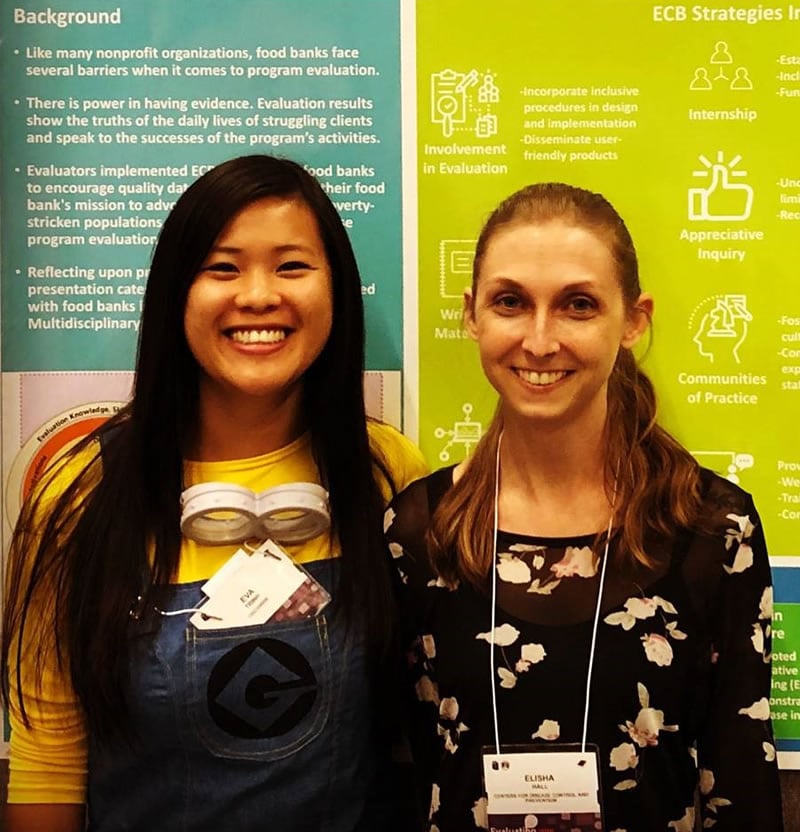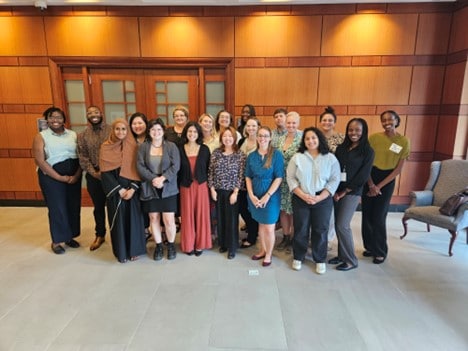Key points
- Since the program started in 2011, over 200 fellows have completed the Evaluation Fellowship Program.
- After completing the program, fellows find jobs at a variety of organizations and sectors.
Who the Evaluation Fellows are
Over 200 fellows have completed the CDC Evaluation Fellowship Program. It started with the first cohort of 5 fellows in 2011 and has grown to 20 Fellows, on average, per cohort. Each cohort is comprised of fellows with diverse backgrounds and the mix of skills needed by host programs varies each year. The Evaluation Fellowship continues to employ strategies to diversify recruitment and applicant pool.
All fellows come into the program with master’s or doctoral degrees in areas such as program evaluation, health promotion, behavioral science, global health, policy, epidemiology, psychology, sociology, education, and life/health sciences. About two-thirds of fellows have master’s degrees, with most having a MPH.

Where fellows work
Fellows are matched with CDC programs that have applied to host fellows, so the available topic areas (e.g., diabetes, preparedness, global health) will vary each year based on which CDC programs apply. The list of host programs will be available to applicants who advance to the “finalist” stage of the selection process.
Following the interview period, fellows are matched with host programs based on mutual interest. Finalists will be able to rank their preferred programs but are not guaranteed a specific placement.
Types of projects that Fellows have completed:
- Support national comprehensive evaluations of CDC-funded programs
- Contribute mixed methods expertise to the planning, implementation, and evaluation of evaluation research projects
- Evaluate qualitative community engagement tools adapted for a public health emergency context
- Manage qualitative data for a large project on community perceptions of and experiences with a public health topic area
- Support strategic planning and evaluation of team processes, and division priority prevention topic
- Conduct needs assessment of state health and agricultural departments to prevent and respond to outbreaks
- Create a plan and implement the evaluation of COVID-19 projects
- Evaluate process and impact of CDC program tools, technical assistance, and resources
- Design and implement performance monitoring system for CDC funded programs
- Create training manual and resources for conducting economic evaluation

